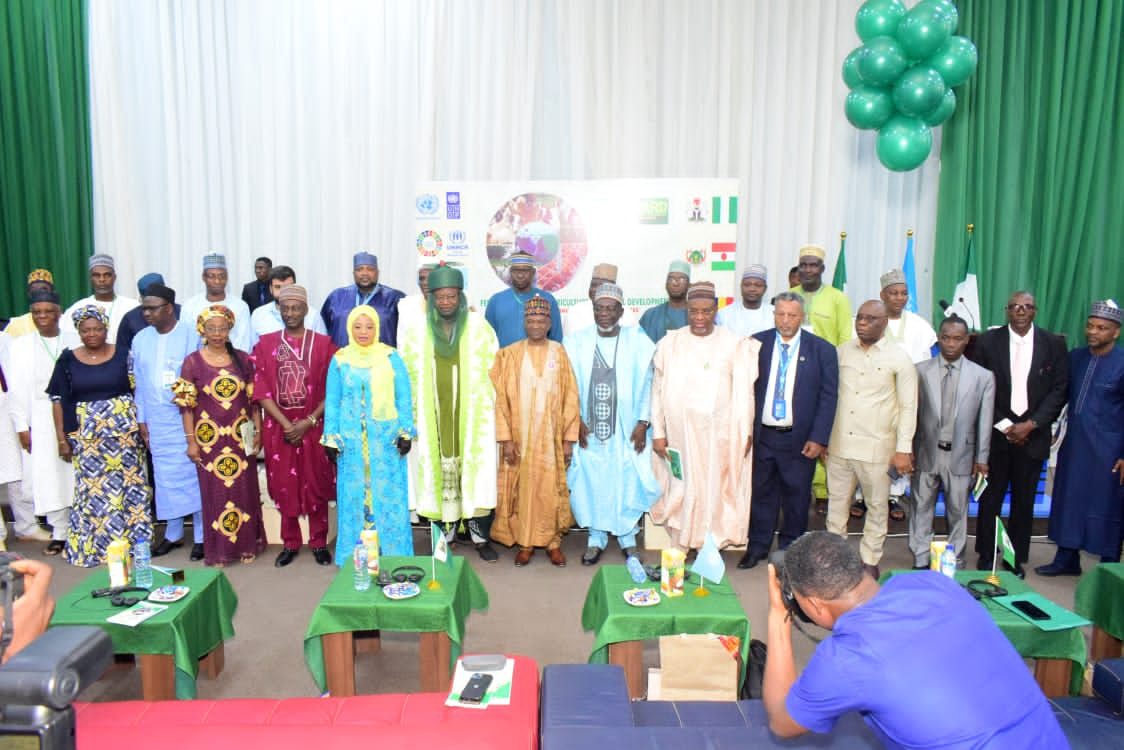
As FG seeks new solutions to tackle menance
The federal government has stated that the unabating clashes between farmers and herdsmen are threatening Nigeria’s effort to achieve food security.
The government is worried that despite the implementation National Livestock Transformation Plan (NLTP), the crisis is yet to subside and has even taken a new dimension.
The Minister of Agriculture and Rural Development Dr Mohammed Abubakar while speaking at the Regional Summit on Human and Climate Security Challenges and Farmer-Herder Conflict Resolution called on stakeholders to come up with new solutions to tackle the menace.
He said The Summit became necessary as it provides the opportunity for dialogue and discourse on the way forward for achieving peaceful coexistence between crop farmers and livestock herders whose incessant conflict in the region is threatening food and national security in Nigeria.
According to the minister, the Farmer-herder conflict predates the existence of Nigeria as an independent, sovereign nation. It is a conflict that the previous and current generations of farmers and herders, especially rural dwellers have come to know and managed properly using traditional methods.
He said unfortunately the dimensions it has taken lately call for deep introspection into unravelling the causes of the heightened, unwarranted attacks by both actors in the conflict stressing the need for more innovative ways of addressing it.
He attributed causes of the crisis to include changing nature of the availability and access to natural resources (land and water) in the region as a result of the effects of climate change adding that “natural resources are under increasing stress due to climate change, leading to fierce competition and violent conflicts over their use. While climate change was not a precursor to the migration of herders to the southern and north-central of Nigeria, it has increased their migration from areas with a high frequency of drought and lower availability of natural resources to the southern forest zone with better resources for their lives”
Abubakar noted “The north-eastern region of Nigeria for example, we are witnessing the negative impact of the depletion of water in the “Oasis in the desert” Lake Chad on the livelihood of over 45 million people living in the Basin. It is common knowledge that crop farmers, fishermen and particularly livestock farmers and other people living around the lake depend on it for their economic well-being and sustenance.
While stating that the dimensions the crisis has taken lately call for deep introspection into unravelling the causes of the heightened, unwarranted attacks by both actors in the conflict and more innovative ways of addressing it, the minister called on stakeholders to come up with an actionable recommendation for combating this quagmire that is fuelling the farmer-herder conflicts and hastening insecurity in Nigeria in particular and the region.
The Minister however mentioned that of the 50 countries most vulnerable to “climate change effects”, 35 are in Africa saying the federal government is working to ensure that our industries work towards cutting carbon emissions in their production and that our agricultural production is tending towards climate-smart.






